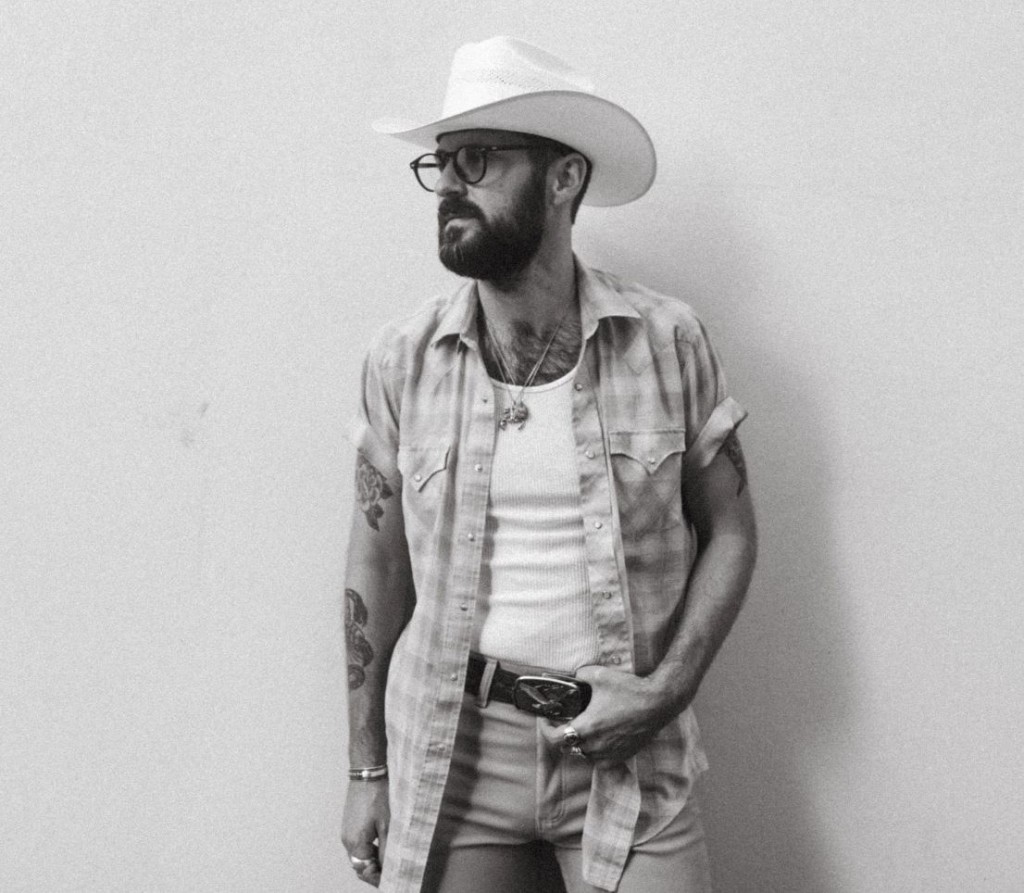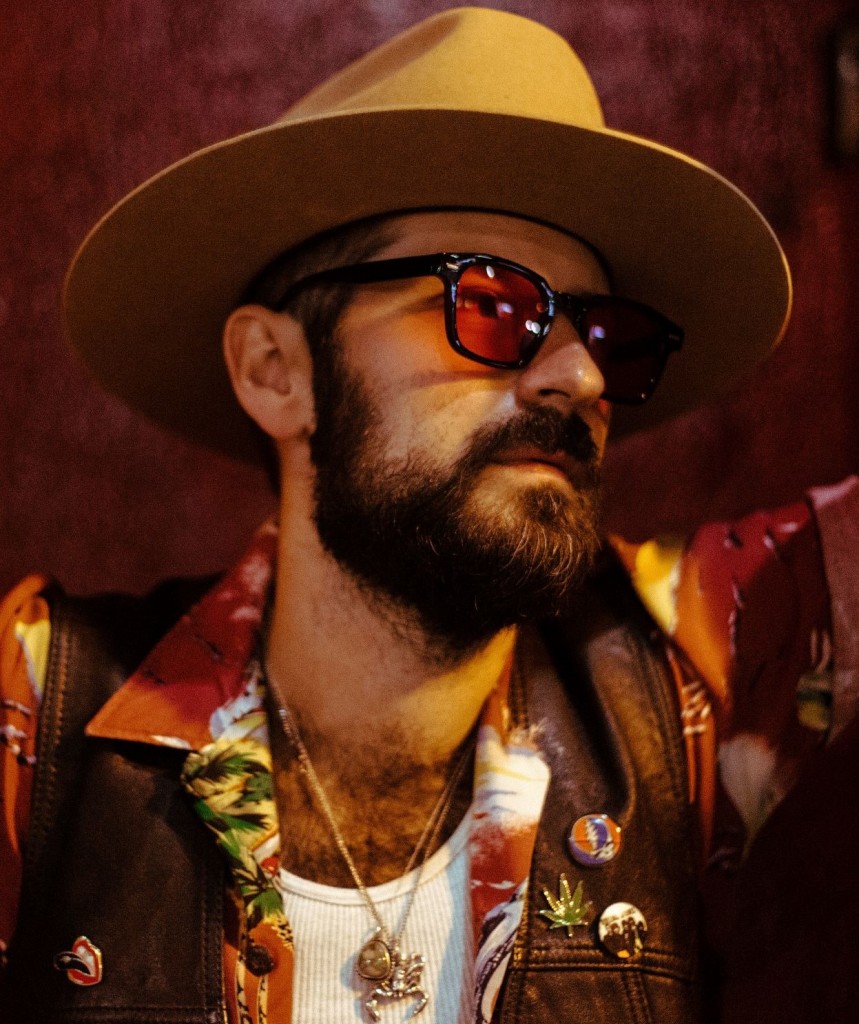
Once I started playing guitar it was all over. I did not care about anything else
John Sponarski
A spotlight on the path which led him to ‘Words Left Unsaid’ and the North Country Collective
By Teppei, Contributor
If you live in the Metro Vancouver area and love to go to Country shows, you have most likely heard of or watched John Sponarski, better known as “Johnny 99.” He has built himself quite the reputation as a top-notch guitar player—not only in the city but across the country. Luckily for all of us Alt-Country fans who enjoy songs where poetic lyrics intersect with substantial storytelling, Johnny 99 has just released his first full-length album titled Words Left Unsaid. Sponarski spoke with the Other Press to describe both his artistry and his journey thus far.
The record consists of twelve songs that have been meticulously crafted the old-fashioned way so each phrase and chord matters. Twelve “hand-made” songs have been created to last, as opposed to “fast-fashion,” mass-produced songs. Reaching this point was not an easy, stream-lined trip for Johnny. It was more of a long and winding one where you must take a few different forest service roads to reach your final destination.
When Sponarski was a kid growing up in Richmond, B.C., both he and his family had high hopes that he would be a professional hockey player. Most of his efforts and energy were focused on playing competitive sports and playing high-level hockey. Sponarski was fifteen when he started playing the guitar, around this same time he met a pal while skating. After becoming friends and talking about hobbies, Sponarski learnt that his new buddy played guitar as well. So, they decided to start a punk band together. This was Sponarski’s first approach to music and it was a collective one; he soon fell in love with it. After being part of that band for about a year, Sponarski decided to quit hockey, shattering his dad’s expectations for him to succeed in the sports world.
“Once I started playing guitar it was all over. I did not care about anything else” says Sponarski. He was lucky enough to have full support from his high school music teacher, who was married to the bass player of DOA—a well-known local punk band at the time, together they helped Sponarski and his band to get gigs throughout the Lower-Mainland and Vancouver Island area.
“By the time I finished high school I was pretty certain I wanted to play music and I thought that the people I was playing with would follow me on that path. So I auditioned for VCC in Vancouver and got in with a condition to take a summer prep program where they provide you with a foundation to understand what you would be learning in College.”
Sponarski spent the next four years in college, learning music to become a professional guitar player. The music program was very demanding and required all of Sponarski’s time and energy. He had to be focused on learning and playing the music he was taught, which deprived him of the opportunity to have a band or be creative. “I found myself in this spot where I had spent four years not playing music. It felt like I had lost this thing that was so important to me that was having a band and being devoted to creating with your friends”
After college was over, Sponarski would go from not being part of any band at all, to playing in eight bands at the same time, but still not creating any music of his own. “I thought that if I went to school to be a guitar player, I was going to try hard to get gigs. After a period of five years, I felt totally lost. I did not have anything of my own. I did not know who I was or what I wanted or even liked.”

Album cover art by Matthew Colin 
Photo provided by John Sponarski
Shortly thereafter, he met Harold Donnelly. Unbeknownst to Sponarski, this would be one of the most beneficial events for his life and music career. They instantly connected on different levels and started making music together. They would gather at Harold’s place once a week to write and play for hours.
“Having that weekly thing in my calendar was a great thing to keep me accountable to create. We started writing together and before we knew it, we started recording. We just wanted to write songs; we did not really think about having a band, but it just happened. So, we recorded some songs in Harold’s basement. The band was called Portage and Main. We put out this first record. Our first gig was at the Anza Club, and it was sold out. All of a sudden, our songs were being played on CBC. It happened organically without really trying.”
“During that period of time, I met Elliot [C. Way] who would book our band to play at his old festival ‘Moonshinin‘ he did at his cabin in Langley. We played there and that day was sort of the inception of everything that was yet to come.” At that time, Harold Donnelly was still in school to become a music teacher and as the band toured the country, he would often be caught up with assignments. As a result, Donnelly began to lose interest in pursuing the live side of music and soon quit songwriting. Shortly after, the band disbanded.
Sponarski explained this change by saying: “I had never felt deserving of doing it [songwriting] cause I have always been too hard on myself, but Harold’s positivity and support always balanced me out and allowed for this very prolific time in my life. So, when he left, I just felt absolutely incapable of doing it without him”
Portage and Main’s break-up left John feeling uninspired and lost. He had gone from trying to be a professional guitar player to finding a purpose in pursuing a singer-songwriter career and having his own band. When his songwriting partner left, he took a break from writing songs and once again found himself involved with a handful of bands.
While playing with local artist Rolla Olak, Olak randomly introduced Sponarski as ‘Johnny 99’. The name was taken from the title of a Bruce Springsteen song, and although Sponarski did not choose it himself, he found it fitting and decided to adopt it for his solo shows.
“If you want to talk about the story of Springsteen’s song: guy kills the clerk[…] I have spent my whole life wanting to appear to be tough when at the heart of it, I am the absolute opposite. I am a soft and sensitive very communicative person. I really want to talk about feelings. I think in the spirit of trying to look like a badass, it makes sense. It is a shield I wear to [seem as if I were] hard.”
During this period, Sponarski still managed to create some of his own tunes and play a few solo shows that came and went seemingly unnoticed. Regardless, they were enough to make an impression on Andy Bishop (singer-songwriter in bands Red Cedar and White Ashfalls amongst others) who approached Sponarski and offered to release an EP through Light Organ Records.
Around this time, Sponarski got hired as a guitar player for Aaron Pritchett’s band and would spend the following eight years touring with them. The urge to remain creative combined with a recent breakup with his long-term partner converged; Sponarski found himself writing one song after the other, and it motivated him to create his first full-length album.
The pandemic hit while Sponarski was working on the demos for this album alongside Matt Kelly (City and Colour, Ben Rogers). Working on an album during those hard times was a silver lining since he could work day and night on his songs. It became his sole focus for the next four months.
“Songs from this last album came out around a time after not only I had come out from this long-term relationship but also my friend Erik and my friend Bob did as well. So there [were] lots of conversations and time spent around this topic of broken hearts and failed relationships. I was processing my own heartbreak and also counselling my friends about their break-ups.” As the time spent with his friends continued, Sponarski began to blend his and their experiences into songs, fusing their ideas into a coherent piece. Many of the lyrics that resulted, focused on interpersonal relationships and how people treat one another.
As for the album’s title, Sponarski admits: “I can’t remember when I chose the title of the album, but I remember finding it was pretty encompassing. We don’t say things because we think we are protecting somebody or because we don’t want to make ourselves feel vulnerable. I wanted to write songs about other stuff but it just did not happen. That was all over the place.”
Sponarski’s guitar playing influences go from country old-timers like Roy Nichols and Don Rich, to more contemporary artists like Nels Cline or Jeff Tweedy. His songwriting draws from solid and robust storytellers like John Prine and Neil Young. More than trying to emulate a specific sound, Sponarski has successfully pulled from what inspires him. He has found his individual way to craft and define his own voice. This only could have been achieved by all the ups, downs and determination that Sponarski has undoubtedly shown through his twenty-plus years in the music scene.
This commitment to Vancouver’s music scene does not end with the music he makes nor the bands he is part of. Sponarski, alongside his friend and bandmate Elliot C. Way (The Wild North), have cofounded North Country Collective (NCC). This Collective was created to not only help those involved in the project but also help other local artists grow and progress in their careers. However, NCC is a collective, not a record label, allowing it to reach outside of the music scene. People that will benefit from their project range from photographers to food industry workers and venues here in the Vancouver area. For the time being, four artists are part of the Collective, but they are hoping to add more very soon.
“Basically, it is a group of close friends who have been trying and failing for a long time, teaming up together and organizing to support each other and hopefully support others. The idea is to help us grow in our careers but also put a stamp [on] this scene and community that has existed in Vancouver for a long while.”
Sponarski considers Vancouver’s art scene to be contained and at times separate from the rest of Canada and the world, but he rejects the notion that what is happening outside of Vancouver is superior. “What we have here is very special. We have gone through all these ups and downs in this community. There was this golden era with all these people that supported it and allowed us to have festivals and singer-songwriters from different communities to come and share. It existed for a short period of time and it stopped.”
“Words Left Unsaid” is NCC’s first release and you can check it out on your preferred streaming platform or pre-order a vinyl on NCC’s website.



